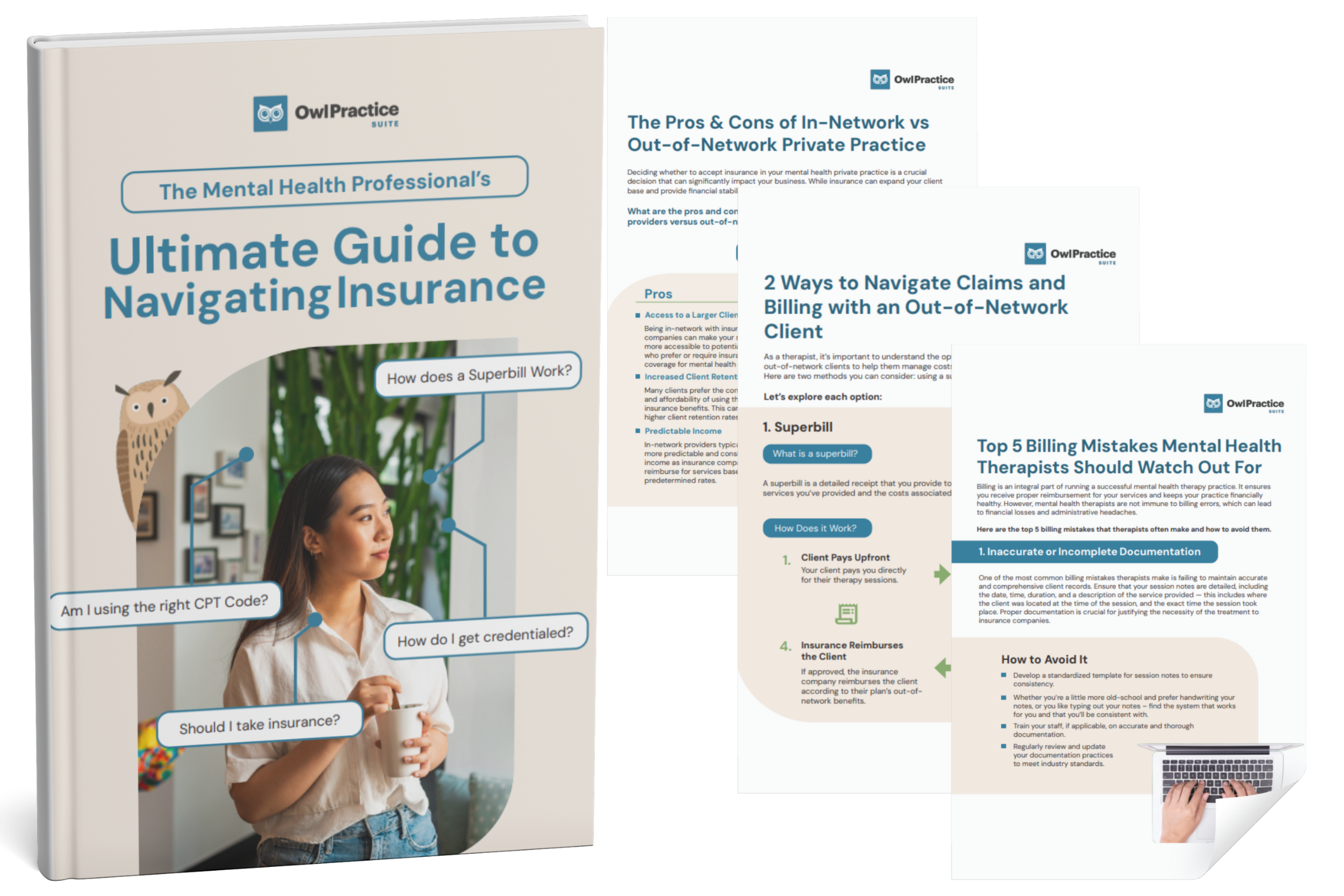Navigating the financial and administrative aspects of a mental health practice is critical for maintaining its success and ensuring clients receive high-quality care. By mastering these areas, therapists can optimize their practice’s financial health, reduce administrative burdens and mistakes, and focus more on providing exceptional care to their clients.

6 Questions to Ask When Verifying Your Client’s Benefits
As a mental health therapist, accepting insurance can be a pivotal decision for your practice. It can offer clients greater access to your services and help you maintain a stable income. However, to provide the best support and guidance to your clients, it’s important to ask crucial questions when navigating the intricacies of insurance acceptance.
Here are the six questions you can ask as you’re verifying your client’s benefits.
1. What Insurance Do You Have?
Start by asking your clients about their insurance coverage. Understanding which insurance plans they have is the first step in the process. This information will help you determine if you can accept their insurance and what the financial implications might be.
2. What Are Your Copayments and Deductibles?
Understanding your client’s copayments and deductibles is essential. Co-payments are the fixed amounts they pay per session, and deductibles are the amounts they need to pay before their insurance coverage kicks in. This information helps you and your client plan their financial commitments for each session.
3. Are There Any Specific Treatment Limitations or Exclusions in Your Plan?
Some insurance plans may have limitations or exclusions regarding the types of mental health services they cover. Discuss with your clients if there are any specific limitations or services that may not be covered by their plan, and what your sessions may look like because of those limitations.
4. Have You Obtained Prior Authorization?
Prior authorization is a process where insurance companies require approval before certain treatments. Inquire whether your clients have obtained prior authorization for your sessions and if it’s required for their specific plan.
5. Do You Understand the Confidentiality Implications?
Therapists must communicate the implications of billing through insurance for confidentiality. Insurance claims may include diagnostic and treatment information that becomes part of a client’s permanent medical record. If a client is not comfortable receiving a diagnosis, even if it’s just on paper – it could be worth having a conversation about having out-of-pocket sessions.
6. Are You Comfortable with the Administrative Aspects?
Finally, ask your clients if they are comfortable with any administrative tasks involved in insurance acceptance, which could include you submitting claims on their behalf, communicating with the insurance company, and providing necessary documentation.
Summary
Navigating insurance acceptance as a mental health therapist involves collaboration and open communication with your clients. Asking these questions can help ensure that both you and your clients are well- prepared for the process.
By discussing insurance-related matters transparently, you can help your clients make informed decisions about their mental health care, maintain their privacy, and work together to achieve their therapeutic goals while navigating the complexities of insurance coverage.

Get the “Ultimate Guide to Navigating Insurance” eBook Below!
Reduce clinical administrative tasks and transform more lives with Owl Practice. Owl Practice provides all the tools you need to make your practice successful. Join the thousands of care professionals using Owl to run their practice every day.



